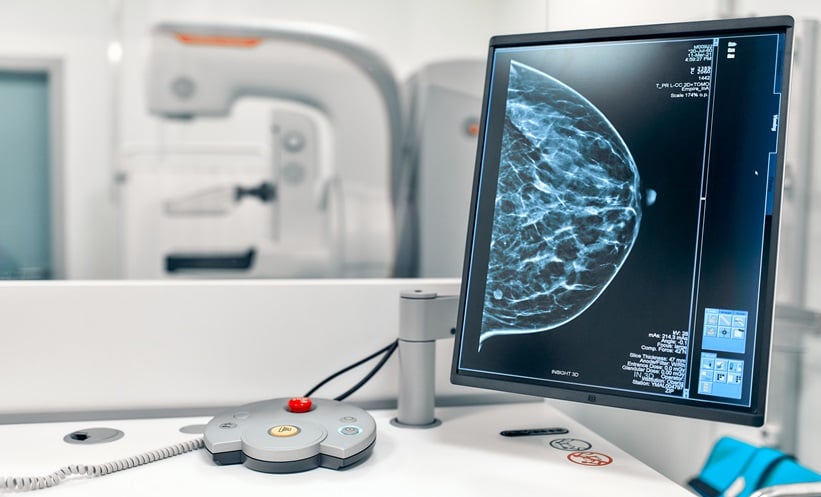ANNUAL mammography screening is associated with a lower risk of late-stage breast cancer and better overall survival (OS) compared to biennial or intermittent screening intervals.
The impact of screening mammography at different intervals on breast cancer outcomes remains a subject of ongoing debate. While some studies suggest that regular screening may reduce mortality, there is still controversy regarding the optimal frequency of screening. To address this issue, researchers evaluated the relationship between screening intervals and late-stage cancer rates, as well as OS, using multivariable logistic regression.
The study included patients who had both a new breast cancer diagnosis and pre-diagnosis screening history between 2004 and 2019. Time intervals between the two most recent screenings before diagnosis were classified as annual (≤15 months), biennial (>15 and ≤27 months), and intermittent (>27 months), with a baseline group having only one pre-diagnosis screen. Survival analysis was conducted using proportional hazards regression, and potential lead time bias was addressed by analysing survival from a uniform fixed time point. Out of 8,145 patients, the percentage of late-stage cancers diagnosed was 9% for annual, 14% for biennial, and 19% for intermittent screening groups (p<0.001). The trend persisted across different age, race, and menopausal status groups. Additionally, patients in the biennial and intermittent screening groups had significantly worse OS compared to those who were screened annually, with relative hazards of 1.42 (95% CI: 1.11 to 1.82) and 2.69 (95% CI: 2.11 to 3.43), respectively.
The findings of the study support the recommendation for annual mammographic screening, which is associated with a reduced risk of late-stage cancer and improved OS. This benefit is consistent across various clinical and demographic subgroups. Future research should continue to evaluate the cost-effectiveness and broader impacts of annual screening to inform clinical practice guidelines and ensure optimal patient outcomes.
Katrina Thornber, EMJ
Reference
Zuley ML et al. Breast cancer screening interval: effect on rate of late-stage disease at diagnosis and overall survival. Journal of Clinical Oncology. 2024;DOI:10.1200/JCO.24.00285.








